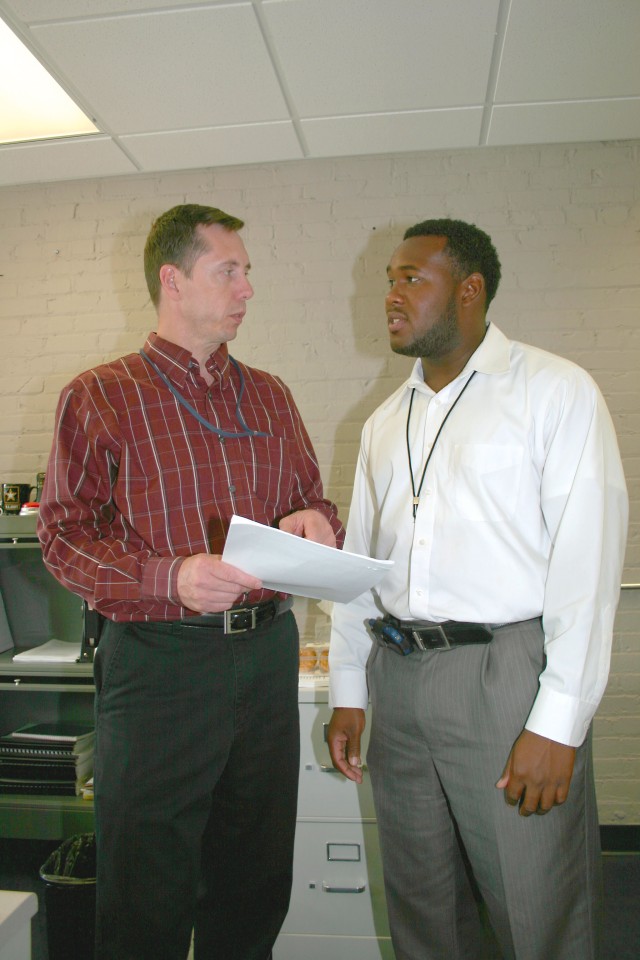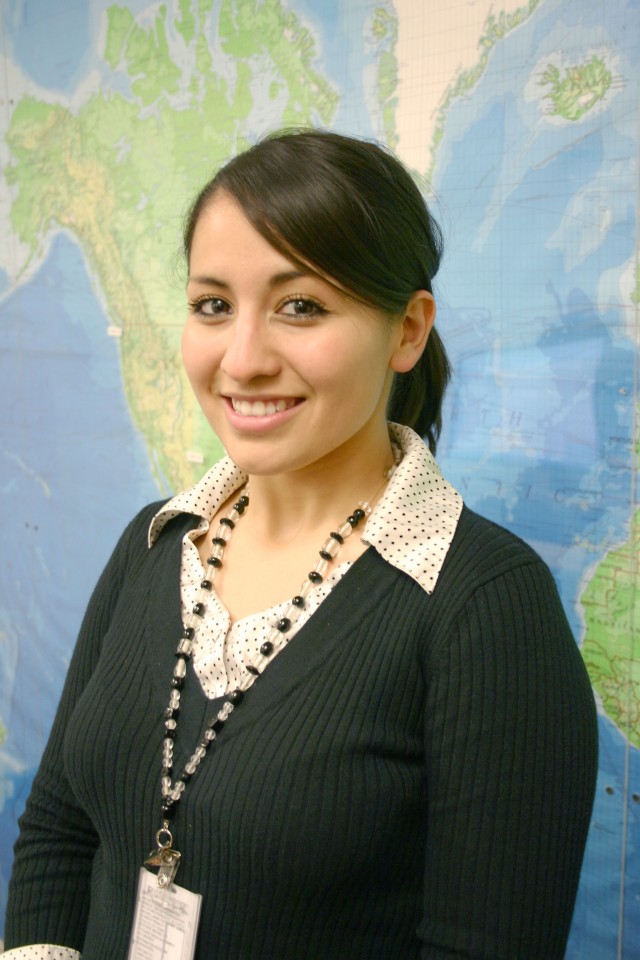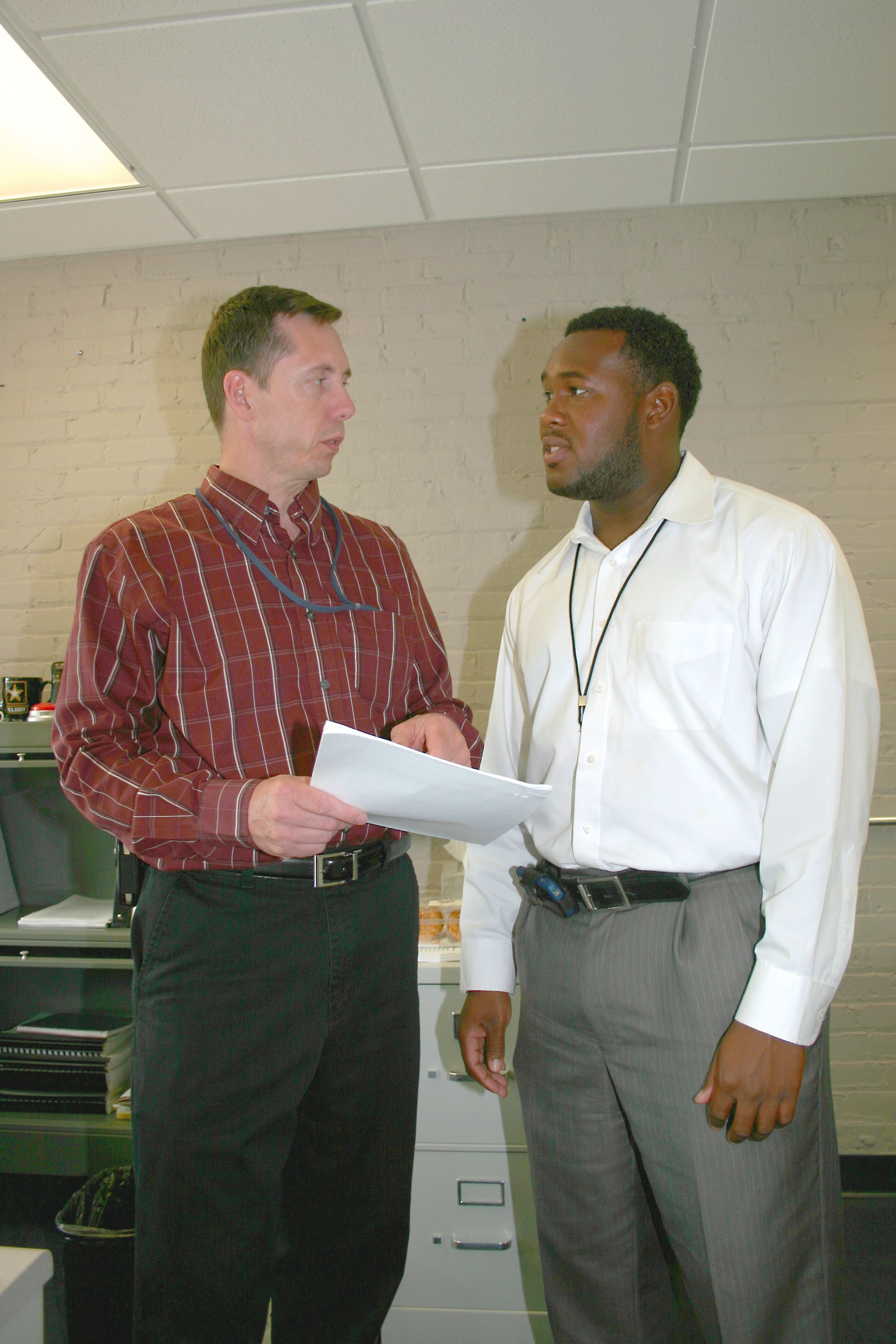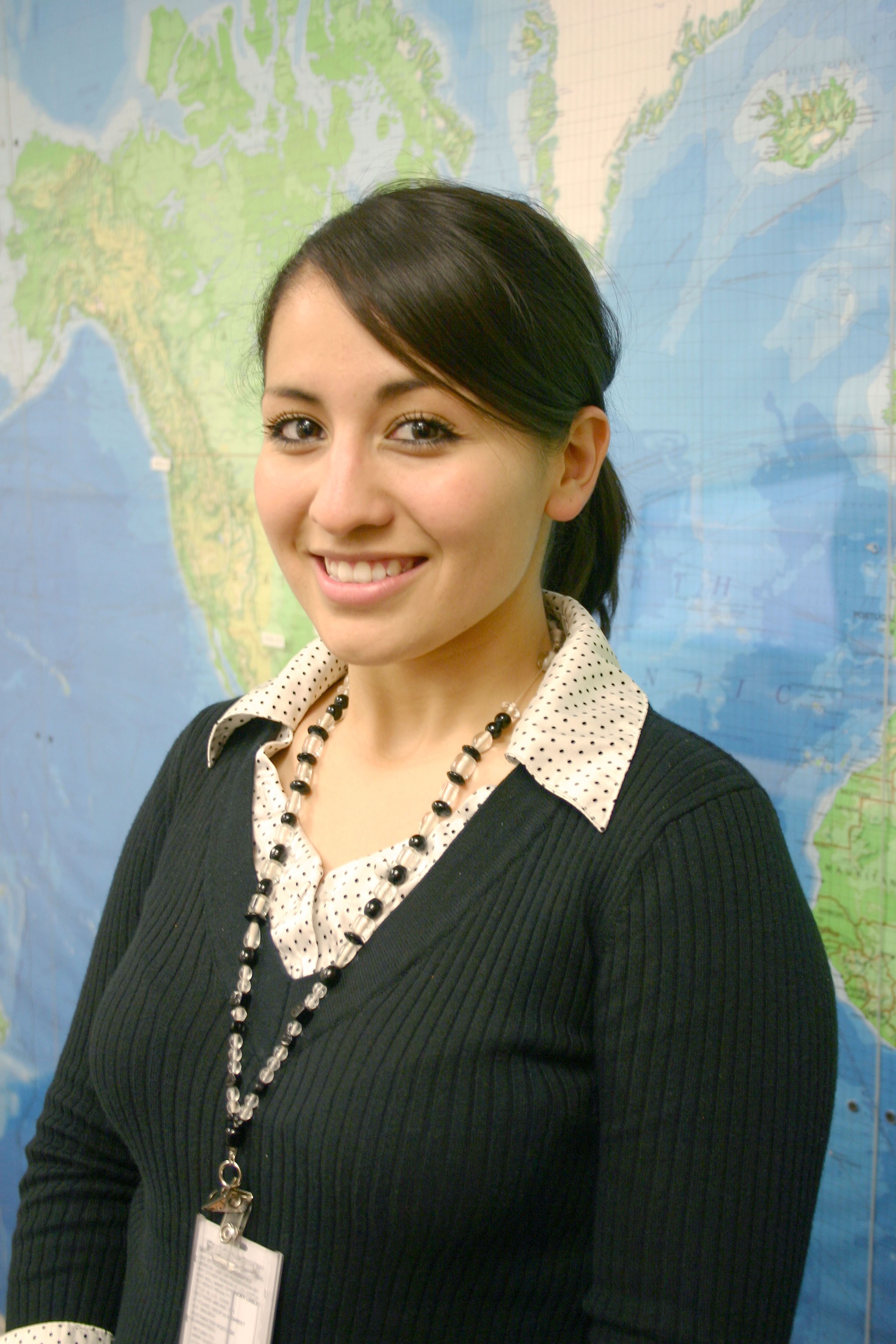Interns from throughout the country are learning to work for one of the most important organizations in the world ... the U.S. Army. As 22 college students are learning, the Minority College Relations Program is turning out to be the experience of a lifetime.
Students and a few graduates with various majors have been placed through the MCRP in the Army Sustainment Command (ASC) and Joint Munitions Command (JMC) at Rock Island Arsenal, Ill.
To be eligible for the program, students must attend a Historically Black College or University, Hispanic Serving Institution, Tribal College/University, or other minority serving institution. They also must be enrolled in a four-year program or have graduated within the past six months, be at least a college junior, a U.S. citizen, and pass a background check.
Majors varying from engineering to communication and from business to computer science testify to the diversity of educational backgrounds. The students applied for the program to learn what it is like to work for a federal entity - in this case, the Army. Although the program lasts 10 weeks, some interns are hoping to land a federal job, while others simply want to gain governmental experience.
Vania Larios, a senior at the University of Texas at El Paso majoring in electrical engineering, said the location and being away from home for 10 weeks were her only concerns in applying to the program. Larios described the application process as relatively easy and welcomed the program's interest in various majors.
"My experience as of now has been great," said Larios. "I like that I have met people of various ethnic backgrounds, and when it comes to work, I am very excited to use and learn new programming methods."
Larios is working for the Directorate of Field Support for ASC. Some of her projects this summer will include mapping and using the software Microsoft VISIO, a program that manages different projects for various fields such as business and engineering. Larios said her sponsor and co-workers have made her feel at ease.
In the Directorate of Materiel, Bob Michaels, a logistics management specialist at ASC, and sponsor for intern Cory Britt, finds him very enthusiastic and looking forward to getting his tasks accomplished.
Britt is a senior attending Alabama A&M University with a major in economics. Britt's work will include creating a Web page and a database for the department.
Britt's goal is to make a career with the Department of Defense. He believes this internship program is a great way to achieve this. "This internship is a great way to network. I have obtained many skills and knowledge that was a great addition to what I have learned in the classroom," he said.
The MCRP coordinator for ASC, Deidre Eaton, said some of her duties include working with students, Vista Sciences Corporation, and government personnel.
Eaton participates in the overall management of the program including recruitment, selection, and assisting the students.
"It is a good program that allows the Army to partner with minority institutions, enabling their students and faculty to participate in federal programs, giving them an opportunity to understand how the government operates," she said.
Although they do not receive an evaluation or grade, students can obtain college credit. During their internship they receive a stipend and transportation to and from work.
"I enjoy working with the students; I have even kept in touch with some of them for quite a while," Eaton said. "I recommend that they take advantage of meeting people in their workplace, do some networking, and look for potential job opportunities."
Courtney Hudson, a political science major and senior from New Mexico Highlands University, found the application process fast. Although there was a lot of paperwork, she found it very worthwhile.
"It is great to learn the theory in school, but it is better to apply it, especially in a governmental atmosphere," she said.
Hudson is working for the ASC Office of Legal Counsel and her summer projects include basic filing duties, records management, and assisting attorneys and advisers. She finds that learning from Army and government lawyers' perspectives will help her have a better understanding of what she wants for the future.
MCRP senior adviser, Jerry DeLaCruz Jr., is responsible for providing vision, guidance, and resourcing assistance to the program.
The goal, he said, is to provide opportunities for the students to serve in a federal atmosphere, while the Army extends communication with minority colleges and universities' academic and technical knowledge base.
Each student is given a project identified by the sponsoring organization. Based on the requirements and guidance they receive from their sponsors, they work to complete it and make a final presentation to the commanding generals of ASC and JMC.
There is also a 15-week winter/spring internship program. DeLaCruz said its goals are the same as the 10-week program.
"I would encourage students to focus on using this as an option to expand their network," said DeLaCruz. "They should network with people they work for, and look at them as possible coaches and mentors."
DeLaCruz feels that MCRP is a great model that should be shared and replicated throughout the Army. "I think this is how we can attract and recruit our future leaders of tomorrow and bring in a diverse representation of our country to work for the Army and for the federal government," he said.
(Editor's note: Other interns include Lee Holguin, New Mexico State University; Georgina Valenzuela, University of Texas-El Paso; Eduardo Garcia, University of Texas-El Paso; Armando Gurrola, University of Texas-El Paso; Heber Prieto, University of Texas-El Paso; Mark Medrano, University of Texas-El Paso; Kimberly Rudolph, Alabama A&M University; Nakita Lovelady, University of Arkansas-Pine Bluff; Beverly Williams, University of Arkansas-Pine Bluff; Tenesa Johnson, Fayetteville State University; Kamal Davis, New Mexico Highlands University; Darren Tabron, Prairie View A&M University; Raquel Mena, University of Texas-El Paso; Erica Garret, Mississippi Valley State University; Jamecia Harris, Jackson State University; Richard Brooks, Jackson State University; Jacques Lawrence, Alabama A&M University; Porsha Bell, Alabama A&M University; and Jason Key, North Carolina A&T State University.)






Social Sharing